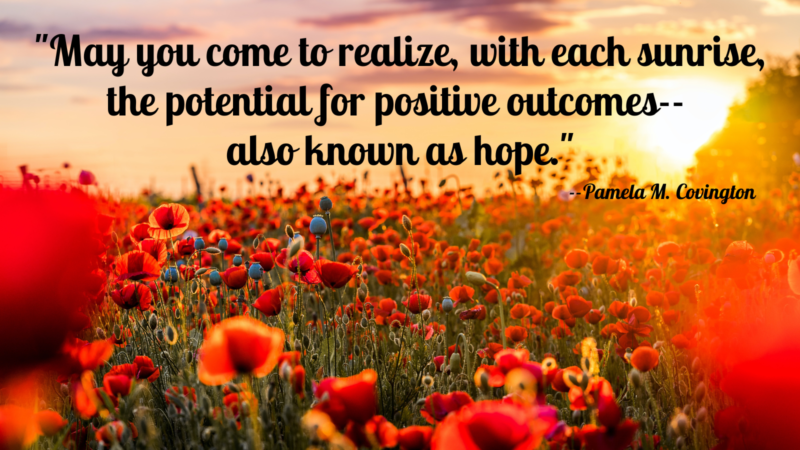Hold on to Hope: It’s a Cousin of Resilience
What is it? Really?

As a noun, hope is “the feeling that what is wanted can be had or that events will turn out for the best” and “a particular instance of this feeling,” according to Dictionary.com. Most of us want to hold on to hope. For example, “I have hope for humanity.”
To have the feeling of hope means you’re not giving up. You may not know what obstacles, if any, will occur regarding a particular desire or situation, but by holding onto hope, you’re acknowledging that the greater possibility of a favorable outcome does exist.
Hope is Also a Verb
As an action word, hoping is when you are maintaining a positive expectation for a desirable outcome; steadfastly holding on.

For example, when you say, “I hope all is well with you” you’re wishing that someone’s health and well-being has been in a favorable state since the last time you connected with them.
When you hold on to hope it also implies that you are continuing to believe things will improve in the future.
The Benefits of Having Hope
Remaining hopeful keeps you on track by enabling you to make the right decisions. Ones that are in line with your values and goals.
It is hope that enables you to consider possible solutions to a problem. Hope is what fuels your determination that something can and will be accomplished. When you no longer have hope about something, it’s quite likely you’ve adopted a sense of futility.
Having hope is necessary in order to be resilient, that is, to exercise a strong capacity for bouncing back from setbacks and disappointments. A hopeful person sees those as the temporary hurdles they are and considers plans to overcome them. Someone who does not hold onto hope remains stuck in a mental mud puddle, feeling overwhelmed, helpless and defeated.

How to Increase Your Hope Factor
1. Squash negative thoughts immediately. Establish the habit of replacing them with happier, more rewarding ones. Focus on your past triumphs and possible successes, rather than the likelihood of failure.
2. Give attention to the desirable things that have already manifested in your life, not emphasize the things you perceive as lacking. This is best done through the regular practice of gratitude. It’s as simple as walking around, taking note of your surroundings and giving thanks.
(When I was a kid and someone complained about something we’d say, “You’d better scratch your butt and be glad!” )
3. Spend time with positive people. Offset negativity by surrounding yourself with optimistic folks who are a joy to be around: people who “get you,” appreciate you, and support you. Interacting with them can lift your spirits and brighten your overall perspective on life, both which will help to increase your hope factor.
Hope Certainly Has Its Rewards
The significance of choosing to hold on to hope cannot be overstated in navigating the complexities of life. Resilience, the ability to bounce back from setbacks, is intricately related to hope, enabling you to view obstacles as temporary hurdles instead of insurmountable barriers. When you hold on to hope, you not only enhance your ability to overcome adversity, but also pave the way for living a happier, more fulfilling life.


